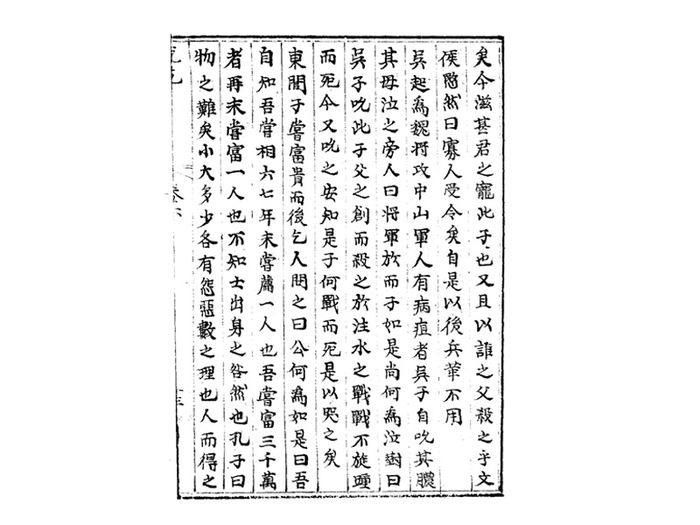(Translation) 2019 吮疽之仁
| Primary Source | ||
|---|---|---|
 |
Title | |
| English | ||
| Chinese | ||
| Korean(RR) | ||
| Text Details | ||
| Genre | ||
| Type | ||
| Author(s) | ||
| Year | ||
| Source | ||
| Key Concepts | ||
| Translation Info | ||
| Translator(s) | Participants of 2019 JSG Summer Hanmun Workshop (Intermediate Training Group) | |
| Editor(s) | ||
| Year | 2019 | |
Original Script
Translation
Student Translation : Olga
Wu Qi was a Wei General. [He] attacked Zhongshan. Among the soldiers was one who was suffering from abscesses. [General] Wu sucked his puss himself. The mother [of the soldier] wept about it. Onlookers said: "The general is like this to your son, yet why are [you] crying?" [She] replied: "[General] Wu also sucked on wounds of his father; that killed him in the battle of Chu river. In the battle [he] did not turn [around] and died. Now again [general] sucked it (abscesses). So how do I know in what battle this son will die? So I am crying about it.
- Discussion Questions:
1. As Dr.Oh explained in class compound 旋踵 literally means "turn one's heels" as in "to flee". I could not think of an exact equivalent in English, but was wondering whether "turn one's back" could be used here to convey the meaning of quitting.
(Emma) Would it be OK to say 'defect' or is that too much of a Western and contemporary word? Maybe "he did not turn his back"?
2. I am a bit confused why the mother keeps saying "this son". Does she have multiple sons fighting under different generals?
(YO) Aha, good point. Perhaps she did have more than one son. Or, she might have been saying something like "this child" or "this boy" by it?